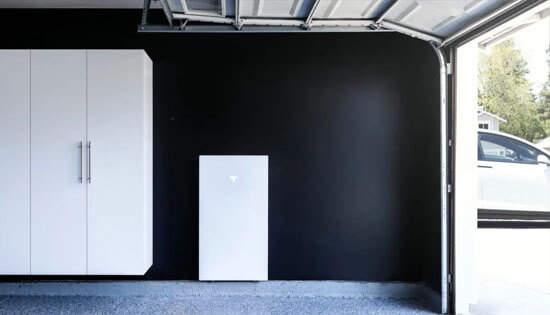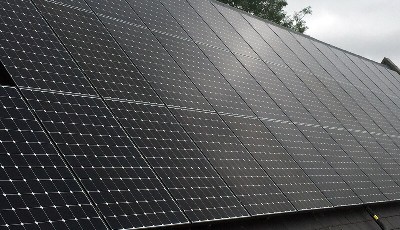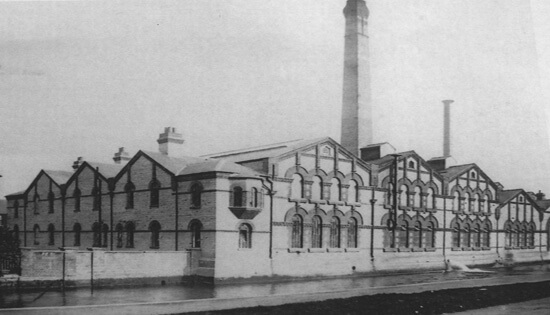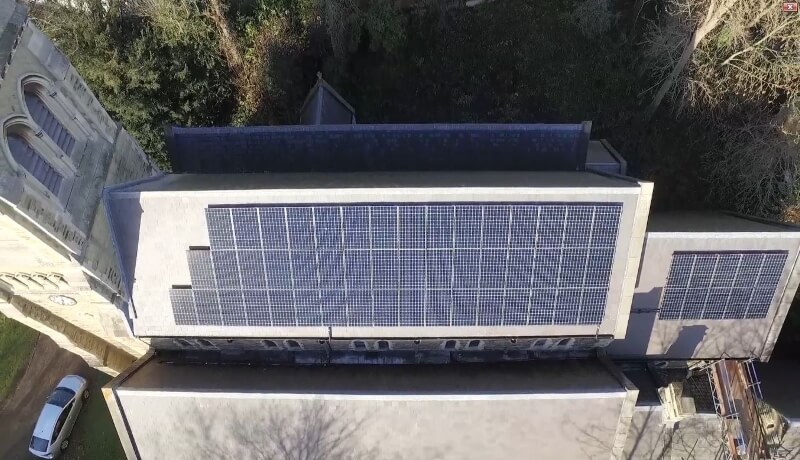Back in the 1890’s a power station in central Oxford powered a local grid that ran the city. As demand for electrical power grew, many small local networks like this across the country were developed. However, by 1925, such an approach was seen as inefficient and fragmented, and major review was conducted by Lord Weir. The British Government created the Electricity (Supply) Act of 1926, which recommended that a “national gridiron” supply system be created. This was the formation of the National Grid as we know it, a back bone of high-voltage transmission lines feeding lower voltage local distribution networks. One outcome of this, however, was that it supported a model of large centralised electricity generation; many GW of coal, gas and nuclear plants supplying the bulk of our power.
Now, in 2019, the challenges are very different. With the need for rapid decarbonisation of electricity to mitigate climate change, not to mention the fact that renewables are now cost-competitive with traditional generation, we now have many smaller generators connected at the bottom of the electricity grid.
Which poses the question: is the old localised energy grid model a more appropriate way of managing our electricity system in the 21st Century? Has the wheel turned full circle?
This is what a major new project, Project LEO (Local Energy Oxfordshire), is looking to find out.

Project LEO
Project LEO is a £13.8m project over 3 years, run by a consortium of Scottish & Southern Electricity Networks, Open Utility (Piclo), EDF Energy R&D, Nuvvé, Low Carbon Hub, University of Oxford, Oxford City Council, and Oxfordshire County Council. The aim of the project, as the name would suggest, is to develop a local electricity market for Oxfordshire, that supplies its own needs, ensures reliable grid operation, and rewards generators a storage for the energy and flexibility they provide.
Why is this project being developed in Oxfordshire? Currently the grid in Oxfordshire is constrained, meaning it’s hard to connect more renewable energy projects to the grid; the grid is essentially full. There are two potential ways to solve this:
- upgrade all the wires and substations so they can take more power. However, the expense of this could be vast.
- Develop a smart local grid, where storage and flexible demand soak up excess renewably generated power, to allow more renewable generation to be connected without massive upgrades of infrastructure
Put another way, lets imagine a new massive solar farm was connected to the grid. In summer the excess power would blow up the existing substations – no-one wants that! So the first option would be to build a new substation at considerable cost. The second option would be to find nearby users to take that excess power, which is likely to be considerably cheaper.
Local Energy Marketplace
To facilitate this, Project LEO is developing a local energy marketplace, to control and manage the operation of the ‘assets’ in a smart local energy system. These assets might include hydro generation on the Thames which could be ramped up and down, or large heating systems such as the Bodleian book depository, which could be used flexibly according to available renewable power. It could also include smaller solar PV systems, batteries and smart EV charging.
Joju Solar to play a part
And this is where Joju Solar comes in! We’re going to be working with our long-term community energy partner the Low Carbon Hub to deliver solar and storage projects that integrate with the Project LEO local energy marketplace. Lots of innovation will be required. For example, currently batteries charge from solar, and discharge to meet demand within the home. In future, batteries will still charge from solar, but might discharge when Oxfordshire needs it, rather than when your home needs it. This should reduce costs for everyone, and allow more renewables to be connected to the grid. However, it won’t be easy; devices will need the ability to ‘talk’ to the grid for them to be able to respond to the signals from the local market.
It’s a very exciting step for us – to go beyond simply installing generation and storage in people’s homes and businesses, and actually help create a local smart electricity grid. We can’t wait to get started.
Further Reading














